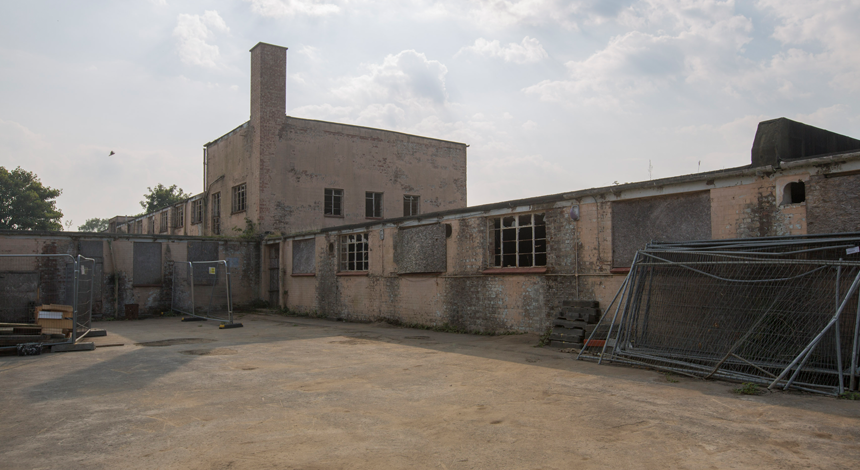Bletchley Park reactivated with first UK National College of Cyber Security
- New education and innovation initiative to grow UK’s cyber workforce launched at iconic home of British codebreaking
- UK’s first National College of Cyber Security will open on Bletchley Park site by 2018 as part of wide-ranging plans to nurture the country’s brightest cyber talent
- £50m cyber investment fund will launch in 2017 to nurture UK’s entrepreneurial cyber businesses on the site where codebreaking innovation aided British war efforts
- Register your interest at www.qufaro.uk
Historic WWII codebreaking site, Bletchley Park will once again play an active role in national security efforts under plans for it to house some of the UK’s most important new cyber security learning and innovation projects.
The plans were announced today by QUFARO – a new not-for-profit body created by leading experts working in cyber security including senior figures from Cyber Security Challenge UK; The National Museum of Computing; the Institute of Information Security Professionals; BT Security, and Raytheon. QUFARO is designed to help deliver the cyber workforce necessary to protect British citizens and organisations against the increasing threat of cyber-attack.
The UK already boasts many successful programmes designed to identify and nurture upcoming cyber talent but they are often disconnected. The gaps make it hard for rising cyber stars to chart an unbroken learning pathway from early-stage interest to qualification, employment and professional development. QUFARO is designed to plug these gaps and act as a gateway both to existing options and new education and innovation opportunities, providing budding cyber defenders with a single point of access.
At the heart of QUFARO’s strategy is the creation of the UK’s first National College of Cyber Security. Based at the historic Bletchley Park site, students will be able to study in the very place where codebreakers famously cracked Nazi codes to aid British war efforts. Operational by 2018, the College will be a free-to-attend boarding school that will teach cyber skills to the UK’s most gifted 16-19-year-old prodigies, challenging and developing them into the top flight cyber security professionals of tomorrow. As part of its remit, the College will select only the most talented and skilled students to attend. It will draw its syllabus from the individuals working at the forefront of the cyber security industry in the UK, and integrate this with modules in complementary subjects such as maths, computer science, and physics.
Margaret Sale, QUFARO non-executive director and founding member of both the Bletchley Park Trust and The National Museum of Computing, said:
“Having been involved with the Bletchley Park site for more than 25 years I believe that QUFARO represents a truly unique opportunity to reactivate this environment as a major active contributor to our national security. Through initiatives such as the National College and the Cyber Investment Fund we can effectively combine the principles of heritage, education and innovation for which everything on this site stands. Previous generations are deeply proud of their contributions at Bletchley Park. I am keen to see what the next cadre will achieve.”
G-Block, one of the largest buildings on the Bletchley Park site, will house the National College. A £5m restoration project is already underway to sympathetically convert it into a pioneering security technology centre boasting some of the most advanced cyber test and demonstration facilities in the world. By doing so, QUFARO will create a centrepiece of national cyber learning and a technical showcase in an iconic setting where organisations from across the country will be able to host events; train staff; and engage the wider public in the cyber agenda.
In addition to the National College, QUFARO will develop a series of new cyber security courses covering a range of learning opportunities that do not exist in the UK today. These include teacher awareness and training programmes, and new virtual courses in the fundamentals of cyber security for those seeking a career change. The first of these new courses is already live. The Extended Project Qualification (EPQ) in cyber security is the UK’s first cyber qualification available for school pupils and independent learners wishing to study cyber between GCSE and university degree/vocational level. It has been funded and developed by QUFARO in collaboration with the Cyber Security Challenge UK, is backed by City and Guilds and opened for enrolment in September. This first foray into plugging gaps in our cyber education landscape is already oversubscribed and is expected to be expanded in 2017 to accommodate more schools and independent learners.
Stephanie Daman, QUFARO executive director and CEO of Cyber Security Challenge UK, said:
“There is a critical skills gap in the cyber security industry, which will become ever more pressing as the world around us moves further into an online-first environment. With so much at stake, from personal data to the country’s critical national infrastructure, now is the time to act. Initiatives such as the Challenge are successful in identifying those who have great cyber skills to find jobs in the industry; but there is a clear need for a programme to compliment this which looks at cyber education specifically and helps individuals to carve different pathways into the sector – be that through apprenticeships, entrepreneurship or traditional education. It is only once a full cyber education ecosystem is developed that the skills issue can begin to be resolved.”
At the same time as delivering its education programme, QUFARO will nurture new British cyber businesses with the launch of a £50m cyber innovation investment fund next year. The fund will support entrepreneurs and seek to stimulate the growth of innovative new information security businesses, growing technological excellence, sovereign capabilities and the contribution the cyber security industry makes to our national GDP.
Those keen to register their interest in any of the QUFARO programmes can visit the organisation’s website to receive regular progress updates and information about opportunities to engage with the QUFARO team.
[su_button url=”https://www.qufaro.uk/” target=”blank” style=”flat” background=”#df2027″ color=”#ffffff” size=”10″ radius=”0″ icon=”icon: arrow-circle-right”]For more information on QUFARO click here[/su_button]





























